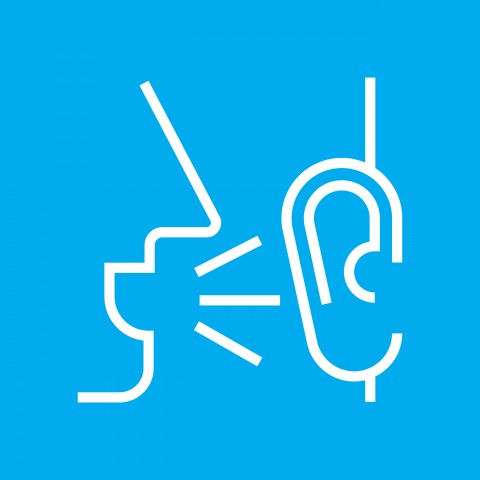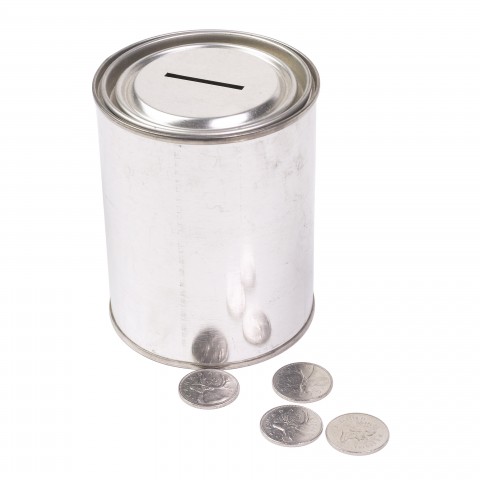
Fillers are those unnecessary words that people sometimes use without even realizing it. They’re usually associated with slang or lack of education. These parasitic words or expressions interrupt speech and sometimes make it more difficult to understand. The English language is full of filler words, but what about Bulgarian?
There are many Bulgarian filler words, too! BulgarianPod101 has prepared this extensive overview to get you acquainted with them, as you’ll encounter them often in your daily conversations with Bulgarians. It’s interesting to note that fillers in the Bulgarian language are influenced by modern language tendencies and change over time. For the purpose of this article, we’ll be covering some of the most common Bulgarian filler words used today.

 Table of Contents
Table of Contents
- What are filler words and why do we use them?
- The 10 Most Common Bulgarian Filler Words
- Filler Words in Business Jargon
- Cons of Filler Words
- How to Get Rid of Filler Words in Your Speech
- How BulgarianPod101 Can Help You Learn the Bulgarian Language
1. What are filler words and why do we use them?
If you’ve ever spoken with a Bulgarian, you’ve probably heard some words said so quickly that you didn’t understand their meaning. These filler words bear different meanings, and our goal is to help you better recognize and understand them so that you’ll be more prepared for real-life conversations.
It might sound strange, but filler words are multifunctional. People use them in different situations and for various purposes. Here are some of their most common functions and properties:
- ➢ These are parasite words that have no specific meaning. If you remove them from a sentence, it will become more clear and understandable.
➢ They do not change the meaning of the sentence.
➢ They help people express their emotions more succinctly.
➢ Filler words are sometimes used to give the speaker time to think about what to say next.
➢ They reveal a kind of linguistic weakness, and are usually used by people who would like to say much more than they actually can.
➢ They help the speaker gently approach delicate topics and predispose the listener to them.
➢ They are also used to emphasize important points and ideas.
➢ Filler words may be used to repeat the same idea again in different words.
Taking into account the various uses of filler words, it’s easier to understand why we’ve dedicated an entire article to them. Let’s now look at some specific filler words in Bulgarian and their English meanings.
2. The 10 Most Common Bulgarian Filler Words
#1
| Bulgarian | Literally | English Equivalent |
| Ами… (Ami…) | – | “Well…” |
You’ll hear this filler word quite often during conversations with Bulgarians. It’s usually placed at the beginning of the sentence, especially if the speaker is about to give a negative response and isn’t sure what to say next. It can be used before phrases like “I don’t know,” “I can’t,” “alright then,” etc. | ||
A: Здравей, свободен ли си днес следобед? Zdravey, svoboden li si dnes sledobed? “Hi, are you free this afternoon?” B: Ами, не знам още. Трябва да си проверя графика. Ami, ne znam oshte. Tryabva da si proverya grafika. “Well, I don’t know yet. I need to check my schedule.” A: Ами, добре тогава. Ще ти се обадя по-късно. Ami, dobre togava. Shte ti se obadya po-kasno. “Well, alright then. I’ll call you later.” | ||
#2
| Bulgarian | Literally | English Equivalent |
| Абе… (Abe…) | – | “Well…” |
Another frequently used filler in Bulgarian, абе (abe) is quite similar to the previous word we looked at and is placed at the beginning of a sentence or expression. While the previous one could go unnoticed, this filler is quite annoying and typically used in “low culture” speech. | ||
Абе, ти сега не ми ги разправяй на мен тези неща! Abe, ti sega ne mi gi razpravyay na men tezi neshta!“ Well, don’t tell these things to me!” / “I know better!” Абе, аз зная по-добре какво да правя. Abe, az znaya po-dobre kakvo da pravya. “Well, I know better what to do.” Абе, ти няма ли най-после да проумееш това! Abe, ti nyama li nay-posle da proumeesh tova! “Well, won’t you finally understand this!” | ||

#3
| Bulgarian | Literally | English Equivalent |
| Значи… (Znachi…) | – | “So…” / “Then…” |
This Bulgarian filler is used unintentionally by a speaker who is trying to explain something or describe a situation. It can be inserted at any point in a sentence. Note: The filler word значи should not be confused with the verb значи, which is translated in English as “means” for the third person singular. Be aware that this word, therefore, can be used either as a filler or as a word with actual meaning. | ||
Отивам значи вчера на магазина и купувам значи две бири. Otivam znachi vchera na magazina i kupuvam znachi dve biri. “So, I went to the store yesterday and so I bought two beers.” Значи днес не можеш да излезеш с мен на разходка? Добре, значи, ще отида сам. Znachi dnes ne mozhesh da izlezesh s men na razhodka? Dobre, znachi, shte otida sam. “So you can’t go out for a walk with me today? Okay, then I’ll go alone.” |
#4
| Bulgarian | Literally | English Equivalent |
| Нали… / Нали разбираш… (Nali… / Nali razbirash…) | “You understand…” | “You know…” / “You see…” |
These Bulgarian filler words are quite common and are normally used when the speaker is searching for affirmation or confirmation from the listener. Note that the filler нали can be replaced by the previous filler значи, as they have nearly the same meaning. | ||
Нали разбираш, не ми беше много лесно. Nali razbirash, ne mi beshe mnogo lesno.“You see, it wasn’t very easy for me.” Разхождам се нали в парка и изведнъж нали пред мен застава Силвестър Сталоун. Razhozhdam se nali v parka i izvednazh nali pred men zastava Silvestar Staloun.“You know, I’m walking in the park, and suddenly, you know, Sylvester Stallone is standing in front of me.” |

#5
| Bulgarian | Literally | English Equivalent |
| Виж… / Виж сега… (Vizh… / Vizh sega…) | “Look…” / “Look now…” | “Look…” / “Here’s the thing…” |
Both of these Bulgarian fillers are used to attract the attention of the listener. They’re usually placed at the beginning of the sentence in order to emphasize the importance of what’s about to be said. | ||
Виж, не искам да те обидя. Vizh, ne iskam da te obidya.“Look, I don’t want to offend you.” Виж сега, минаваш по този път, завиваш наляво и си на точното място. Vizh sega, minavash po tozi pat, zavivash nalyavo i si na tochnoto myasto.“Here’s the thing, you should go this way, then turn left and you’ll be in the right place.” |
#6
| Bulgarian | Literally | English Equivalent |
| Всъщност… / Фактически… (Vsashtnost… / Fakticheski…) | “In fact…” | “Actually…” |
While these Bulgarian fillers are perfectly fine to use in speech, they can become irritating to the listener if used too much. These fillers cannot be used at the end of a sentence; the speaker adds them when he would like more time to form his thoughts. | ||
Аз всъщност исках да кажа друго. Az vsashtnost iskah da kazha drugo.“I actually wanted to say something else.” Фактически до сега нищо не съм постигнал. Fakticheski do sega nishto ne sam postignal.“In fact, I have not achieved anything so far.” |
#7
| Bulgarian | Literally | English Equivalent |
| Сещаш се… (Seshtash se…) | “You guess…” | “You know…” |
This filler aims to keep the other party interested during a conversation. It’s very close to нали / нали разбираш above. By using it, the speaker wants to make the other party empathetic to what they’re saying and to provoke more interest in it. Using this filler too often is indicative of a low culture of speaking. | ||
Here’s how this word might be used in a phone conversation: Вчера бях, сещаш се, в ресторанта и там дойде управителят и сещаш се какво ми каза—че съм уволнен. Vchera byah, seshtash se, v restoranta i tam doyde upravitelyat i seshtash se kakvo mi kaza—che sam uvolnen.“Yesterday I was, you know, in the restaurant and the manager came there and, you know, what he told me—that I am fired.” |
You might be interested in studying more about how to make a phone call in Bulgarian.

#8
| Bulgarian | Literally | English Equivalent |
| Викам… (Vikam…) | “I shout…” | “I intend to…” / “I tell…” |
This Bulgarian filler is typically used to replace the verbs смятам (smyatam) – “I intend” and казвам (kazvam) – “I tell.” | ||
Викам да направя една баница. Vikam da napravya edna banitsa.“I plan to make banitsa.” Обаждам се аз по телефона на мой приятел и му викам да излезем заедно, а той ми вика, че не може. Obazhdam se az po telefona na moy priyatel i mu vikam da izlezem zaedno, a toy mi vika, che ne mozhe.“I called my friend and told him to go out together, and he told me that he can’t.” |
#9
| Bulgarian | Literally | English Equivalent |
| Човек… / мен… (Chovek… / Man…) | “Human” / “Man” | “Man…” |
These two filler words are equivalent in meaning and are comparatively new, used mainly by young adults and teenagers in Bulgaria. It’s obvious that the filler word мен is the transliteration of the English filler “man,” which probably entered the Bulgarian vernacular via American movies. Both fillers are used to address the interlocutor. * Note that the filler word мен should not be confused with the personal pronoun мен.* Note also that there are regional variations with the same semantic meaning. For example, people in Sofia could use the filler word брат (“bro” / “brother”), while people in Plovdiv prefer the expression майна (“dude”). | ||
Човек, да знаеш какво ми се случи вчера! Chovek, da znaesh kakvo mi se sluchi vchera!“Man, you know what happened to me yesterday!” Вървя си по пътя, мен, и изведнъж чувам познат глас зад мен. Varvya si po patya, men, i izvednazh chuvam poznat glas zad men.“I’m walking down the road, man, and suddenly I hear a familiar voice behind me.” |
- While we’re on the topic of slang, here’s a list of the most common texting slang.
#10
| Bulgarian | Literally | English Equivalent |
| В смисъл / тоест… (V smisal / toest…) | “I mean…” / “In other words…” | – |
These Bulgarian filler words are similar to всъщност and фактически. They’re used to make something more clear, but when they’re used too often, it can become irritating for the listener. | ||
A:Трябва да започнете да учите повече! Tryabva da zapochnete da uchite poveche!“You have to study more!” B:В смисъл? V smisal?“What do you mean?” A:В смисъл, че ви предстоят изпити. V smisal, che vi predstoyat izpiti.“I mean that you will have to take exams soon.” Вчера излизам от вкъщи, тоест не на разходка, а до магазина и разбирам, че парите не са в мен. Vchera izlizam ot vkashti, toest ne na razhodka, a do magazina i razbiram, che parite ne sa v men.“Yesterday I left my house, i.e. not for a walk, but to go to the store, and I found out that the money is not with me.” |

- BulgarianPod101 can help you prepare for your approaching Bulgarian proficiency exam with thousands of useful lessons.
Bonus Filler Word
| Bulgarian | Literally | English Equivalent |
| такова… (takova…) | “this” / “that” | – |
We present here the most universal Bulgarian filler word you’ll hear in your conversations with Bulgarians. Locals can use this filler in place of any word they’re struggling to remember. | ||
In place of a noun Трябва ми такова… сол. Tryabva mi takova… sol.“I need that… salt.” In place of a verb Излизам да таковам… да играя. Izlizam da takovam… da igraya.“I go out to do this… to play.” * Note that when it replaces a verb, this filler word follows the rules of verb conjugation. In place of an adjective Тя е толкова такава… хитра. Tya e tolkova takava… hitra.“She is so this… cunning.” * Note that when it replaces an adjective, this filler word declines differently depending on the gender of the noun. |
- To limit your use of this filler, we recommend learning the 50 most common Bulgarian adjectives on BulgarianPod101.com.
3. Filler Words in Business Jargon
It’s interesting to note that some of the filler words in spoken Bulgarian have been influenced by the business jargon. We’ve already described two of them: всъщност and фактически, which are equivalent in meaning.
Bulgarian business jargon contains business or technical terms as well as foreign words. Some more examples of Bulgarian filler words taken from business jargon include:
#1
| Bulgarian | Literally | English Equivalent |
| Буквално… (Bukvalno…) | “Literally…” | “Literally…” |
Това буквално означава да се преместиш в друга държава. Tova bukvalno oznachava da se premestish v druga darzhava.“This literally means moving to another country.” |
#2
| Bulgarian | Literally | English Equivalent |
| Така да се каже… (Taka da se kazhe…) | “So to speak…” | “So to speak…” |
Налага се, така да се каже, да направим голяма промяна. Nalaga se, taka da se kazhe, da napravim golyama promyana.“We have to make a big change, so to speak.” |
#3
| Bulgarian | Literally | English Equivalent |
| Практически… (Prakticheski…) | “Practically…” | “Practically…” |
Той е практически навсякъде. Toy e prakticheski navsyakade.“He is practically everywhere.” |

BulgarianPod101 will help you sound like a native Bulgarian speaker with the following list of essential idioms.
4. Cons of Filler Words
While using the occasional filler in Bulgarian can help you buy time to organize your thoughts, they can easily become a bad habit. Filler words add no value to a sentence, and they also make speech or writing more difficult to understand by interrupting its flow.
If you find yourself using fillers unintentionally, it’s a good idea to learn how to limit their use in your everyday life. Which brings us to our next section…

5. How to Get Rid of Filler Words in Your Speech
When using filler words becomes a habit, it’s difficult (but not impossible) to stop. Just don’t give up! There are some techniques that can help:
- Record yourself speaking: Listen to your speech to find out how many filler words you use and try to make another recording without them. This practical exercise has to be repeated often to remove the bad habit, especially if you’re planning to speak with a really important person.
- Don’t speak too much: Try to form your thoughts with fewer words than usual. It’s more important to speak clearly and get to the point.
- Keep silent for a few seconds: It’s better to make a pause in speech while thinking than to fill the time with unnecessary expressions.
Make a jar or bottle for fines: Put a coin inside every time you catch yourself using a filler word. This will motivate you to use them less often.

Feeling ambitious now? BulgarianPod101 encourages you to try out the following list of language learning goals for the month.
6. How BulgarianPod101 Can Help You Learn the Bulgarian Language
We hope that this Bulgarian conversation filler words overview will help you recognize and understand fillers in your conversations with Bulgarians.
It’s a good idea to get familiar with this Bulgarian filler words list so that you can sound more like a native speaker and better understand conversations. If you would like to advance your Bulgarian language knowledge and practice with a private Bulgarian teacher, you can take advantage of BulgarianPod101’s MyTeacher service for Premium PLUS members.
We’ll be glad to hear your feedback about this article. Please don’t hesitate to share your thoughts with us in the comments!










